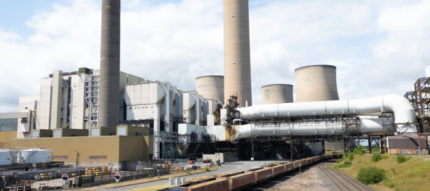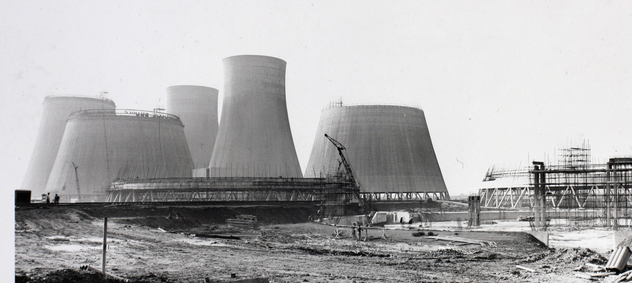
On 26 September the UK shut down its last coal burning power station, Ratcliffe-on-Soar, thereby becoming the first among the world’s major industrialised economies to wean itself off coal. The move is all the more symbolic because Britain was the first to burn coal on a huge scale to support the Industrial Revolution, launching what became a global addiction to coal. The world’s first coal fired power station started up in London in 1882
The UK government aims to generate all its electricity from sources other than fossil fuels by 2030. Oil and gas currently account for the major part of the country’s power supply, though renewables make up 40 % of generation.
Ratcliffe’s countdown to closure began in 2015 when the government announced plans to end UK coal power generation over the next decade, finally confirming the October 2024 end date in 2020.
Since then, there have been a series of poignant ‘last moments’. In January this year, all four of Ratcliffe’s 500 MW units ran together for the last time. And, in June, the last delivery of coal by train arrived, carrying the final 1650 tonnes shipment from the port of Immingham to the site, and the occasion was marked by officially naming the locomotive ‘Ratcliffe Power Station’.

In 2012, the UK was still generating around 40% of its electricity from coal, but this has now dropped to zero in the 12 years since. Coal was not replaced with gas generation in the UK. Instead, huge increases in wind (up 315%), solar, and declining electricity demand filled the gap and has seen UK power sector emissions fall steeply, 74% since 2012.
The UK has achieved this part of its decarbonising ambitions through a combination of policies to ban the building of new coal fired power stations unless they employ expensive carbon capture technology, imposing carbon emission limits on existing coal fired power stations, increasing the cost of carbon pollution and rapidly building renewables capacity, especially offshore wind. As a result, coal has become uncompetitive, squeezed out by cheaper energy sources. The government has committed to decarbonising the power system by 2030.
Alliances
The UK and Canada founded the Powering Past Coal Alliance in 2017 to accelerate the global transition away from coal. With the secretariat hosted by E3G, it has grown to 181 national, sub-national and non-state actors committed to the phase–out of unabated coal power, including 24 out of 27 EU governments. On 17th September, David Lammy, the UK Foreign Secretary, announced the UK’s intention to set up a global Clean Power Alliance, building on this success.






